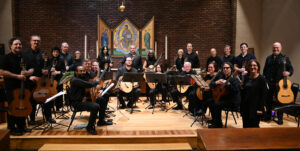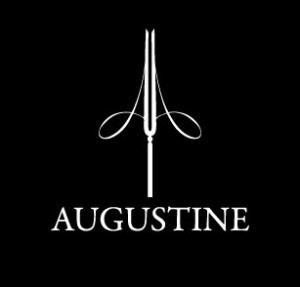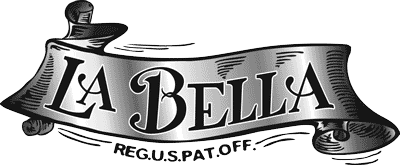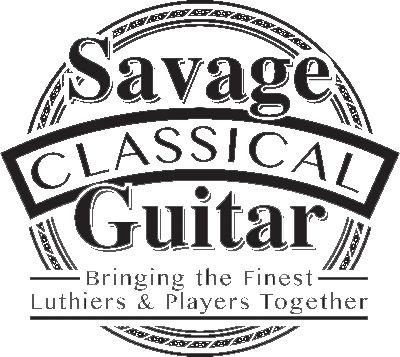by J. Andrew Dickeson
February 2008
Seamlessly blending the pristine technicality of classical training with the adventurous spirit of Brazilian music, the Brasil Guitar Duo (João Luiz and Douglas Lora) has been igniting virtuosic fires on concert stages around the world. In the interview below, I speak with Douglas Lora about the origins of the duo and what we can expect from their CD.
When did you begin playing, and what originally attracted you to guitar?
Douglas Lora: Both of us started early as musicians, but not as classical guitar players. We played other instruments at the age of eight and nine, and we both had a popular music background before starting on the classical universe. I think this is essential for our playing.
At what school did you study?
We had different teachers before we started our bachelor’s degree at the School of Music in São Paulo, at the FAAM. Our main guitar teacher is Henrique Pinto, with whom we’ve been studying for more than 12 years.
Of course we learned so many things from so many great teachers we had in our lives, but as for the duo, no one had such importance as Henrique.
What are the most important things you learned from him?
How to develop our skills and to find out the beauty and the pleasure of being a musician, in the most deep sense of this word.
How did the two of you meet and begin playing together?
We met at the School of Music. João is one year younger than me, so by my second year of school he came to me and asked me if I wanted to play with him for the Chamber Music Class. So we started playing together and everyone recognized a strong chemistry, principally Prof. Henrique Pinto. He started booking us some concerts around the city. It was a very natural process and until today, things keep going the same way, naturally … of course with very hard work and lots of hours in the practice room.
What were some of the first pieces you played together?
I remember we played the Spanish Dance No. 2 by Granados, a Valse by Sor, but the very first one was Drewrie’s Accords by an anonymous Renaissance composer. We also started playing right away our own arrangements and compositions.
You’ve had a full touring schedule on two continents for many years now. Where are some of your favorite places to perform?
We play with the same verve and enthusiasm everywhere we go, from huge concert halls to small suburban churches. But there are some very special places like Weill Recital Hall (Carnegie Hall), Sala Luis Angel (Bogota-Colombia) and Johns Hall, in Houston. There’s also a small room at the Art Museum of São Paulo where we play every year, and where the acoustics are amazing.
Do you have some touring stories (good or bad) that you’d like to share?
Not really, just good things. It’s funny when some sound engineer asks us if we need mics to sing, though.
Tell me about the music on your new CD, Bom Partido.
This CD is the first release of CAG records. We are so proud of this, and also satisfied about the final result of the sonority. It’s very clear and bright, and we are happy also with the playing, although we play the pieces differently now after two years.
“Bom Partido,” an amazing piece by Paulo Bellinatti, is a play of words from Partido Alto, which is a specific kind of samba. In informal language, “bom partido” means a good-looking person; we thought that was a good name to attract people’s curiosity, at least in Brazil.
How did you choose the music for the CD and what would you say is unique about this CD?
Our first CD is all about classical music made by the great traditional composers. Bom Partido is totally devoted to Brazilian music, featuring original arrangements and compositions, and works by contemporary composers from Brazil. Various traditional rhythms from Brazilian music are represented here: Baiao, Samba, Choro, Maxixe among others.
Our program nowadays is a balanced mix of “classical” and Brazilian popular music, so this is a complement for the first CD.
I quoted “classical” because this “label” issue is a very polemic subject and it would require a whole interview to be developed.
I’m using this nomenclature just make it more practical, but we feel that the line that divides popular and classical music is getting more and more subtle.
What music will you be performing on the New York City Classical Guitar Society concert?
We’ll play some of the Bom Partido pieces and also new music from two projects we are working on. One of them is the recording of Castelnuovo-Tedesco’s works for two guitars, and a new Brazilian music CD we are recording this year.
The Brasil Guitar Duo performed on the NYCCGS Concert Series on March 14, 2008.









